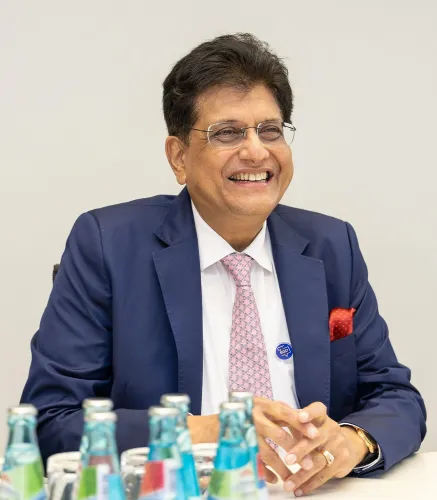Delhi Liquor Scandal: CAG Report Reveals Rs 2,002 Cr Loss and Unmet Goals

Synopsis
Key Takeaways
- Alleged loss of Rs 2,002 crore due to non-transparent policies.
- Failure to meet key objectives of the excise policy.
- Concerns regarding favoritism and irregularities in licensing.
- Health risks due to lack of quality control measures.
- Recommendations for accountability and enforcement improvements.
New Delhi, Feb 25 (NationPress) The Comptroller and Auditor General of India (CAG) report presented in the Delhi Assembly on Tuesday indicated that former Chief Minister Arvind Kejriwal and his cabinet members supposedly incurred a loss exceeding Rs 2,002 crore due to their opaque excise policy, widely referred to as “Liquorgate.”
The report pointed to illicit decision-making favoring select licensees, stating, “The actual implementation was below par, and the goals associated with the policy were not met. Liquor vends in non-compliant wards failed to open, and a fair distribution of retail outlets was not accomplished. There were significant flaws in the issuance and management of zonal licenses.”
The audit document from the central government, which has unveiled the liquor scandal, is titled, 'Report of the Comptroller and Auditor General of India on Performance Audit on Regulation and Supply of Liquor in Delhi.'
This scam linked to the now-repealed excise policy was a prominent issue in the recently concluded Assembly Elections, with even Prime Minister Narendra Modi pledging to unveil the corrupt by stating, “Jinhone loota hai, unhe lautana padega (The looters will have to pay back every penny).”
On Tuesday, the CAG report was presented by Chief Minister Rekha Gupta amidst loud applause from BJP members, while Lieutenant Governor V.K. Saxena assured that he would review the CAG findings and enhance the system.
Previously, corruption and money laundering investigations linked to the now-terminated excise policy led to Kejriwal and his colleagues – Manish Sisodia and Satyendar Jain – spending several months in jail before securing bail.
The findings from the Comptroller and Auditor General of India, Girish Chandra Murmu, also spotlight the areas where it fell short of achieving its declared objectives.
Among these unmet goals were: generating optimal revenue for the government, eliminating the sale of counterfeit liquor, streamlining the excise framework, preventing the formation of cartels, simplifying duty and pricing policies, and ensuring adequate distribution of retail vends.
“Responsibility and accountability must be established for the observed lapses, and the enforcement mechanisms should be bolstered,” stated Murmu in his concluding recommendations in the report for the fiscal year ending March 31, 2022. The report was also endorsed by Principal Accountant General (Audit), Delhi, Aman Deep Chatha.
Under the section titled “Decisions made without proper authority approval,” the CAG report included the establishment of liquor vends in appropriate areas, such as residential zones or near places of worship or schools.
The report criticized the previous administration for easing punitive measures against licensees for non-payment of fees, granting waivers or reductions in license fees, refunding earnest money deposits in the Airport Zone, and adjustments in the methods for calculating MRP for foreign liquor.
The CAG report also emphasized that a document from a group of AAP ministers strayed from the recommendations provided by an expert committee tasked with drafting a new excise policy.
One significant oversight by the GoM was permitting a single applicant to acquire up to 54 retail vends, contrary to the expert panel's recommendation that limited individuals to a maximum of two vends.
The CAG also raised concerns over a provision in the now-abrogated excise policy that permitted retail licensees to offer discounts to consumers.
Another crucial finding was the failure to establish laboratories to assess the quality of liquor supplied in Delhi, a shortcoming that put millions of city residents at health risk, according to the CAG report.
The government auditor's analysis criticized the AAP administration's policy-making and execution, pointing out numerous instances of irregularities, such as a lack of transparency in pricing, violations in the issuance and renewal of licenses, failure to penalize offenders, and not seeking approval from the LG, Cabinet, or Assembly.
The CAG report indicated that the exchequer lost approximately Rs 890 crore due to the AAP government’s failure to re-tender surrendered retail liquor licenses.
The report remarked, “There was insufficient scrutiny of the business entities regarding their financial capacity and management skills. Instances were noted of related business entities holding licenses throughout the liquor supply chain.”
“Data on liquor supply suggests exclusive arrangements between zonal licensees and wholesalers and brand promotion. The surrender of zonal licenses during the extended policy period further caused significant revenue loss. Other essential measures planned in the policy, such as establishing laboratories and conducting batch testing for quality assurance, as well as the creation of super premium vends, were not executed,” it added.
The government incurred an additional loss of Rs 941 crore due to exemptions granted to zonal licensees, the report stated.
The GoM, led by Minister Manish Sisodia, allegedly disregarded the recommendations of the expert panel and even permitted disqualified entities to bid for licenses.









